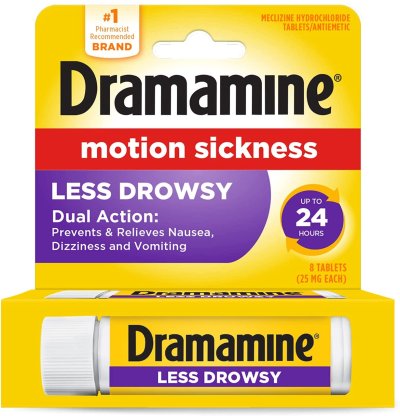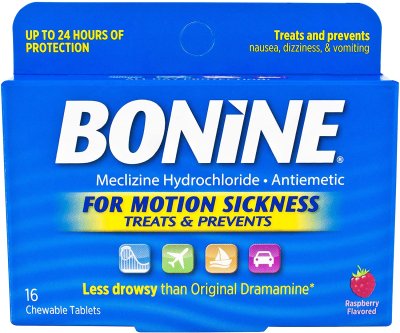What is Sea Sickness?
What Happens, Why Does it Happen, and How to Prevent It?
Seasickness is a form of motion sickness and occurs after spending some time on a boat on the water. This type of motion sickness is brought about by the rocking motion of the craft and is characterized by nausea and, in extreme cases, vertigo. Some people are vulnerable to the condition after only a minor stimulus, while some are immune, and others are immune through exposure.

What is Motion Sickness?
Motion sickness happens when repeated movements of vehicles disturb inner ear muscles. Some people experience vomiting and nausea when traveling in their cars. Three-dimensional movies can also cause nausea. This is also common for people at theme parks, roller-coast rides. Also, the same thing happens to many when riding on a boat, like cruises. It’s often called seasickness, but it remains the same disorder known as motion sickness. We include in this article exciting items for the readers. If you follow this blog, it may clarify that motion sickness is a widespread disturbance in our inner ear and that millions of people deal with the same common problem.
Visually Induced Motion Sickness is it the Same Thing?
Any mode of travel, whether in route to the sea or air, may create a feeling of visually induced motion sickness. Kids 0 to 12 years of age have the highest probability of recurring motion sickness. These conditions can lead to ear damage to the ears and internal structure if not corrected. Motion sickness can usually be resolved quickly and does not typically need a professional diagnosis. Reserving a window seat can help; any visually fixed item you can focus on with help reduces the symptoms before you leave to make a reservation for the flight. Eating well, so the stomach feels well settled and hours before activity.
Try to prevent eating greasy foods or acids before or during travels. Have home remedies at hand or try alternative treatments, which you can read about below for pilots, astronauts, or other professionals who often suffer frequent motion sickness as part of their professional cognitive therapy for prevention.

Causes or Triggers for Sea Sickness in Inner Ear
Motion sickness is not a virus and is not infectious reported by national disease control. However, some factors can bring on motion sickness relatively quickly. These include going below deck for extended periods, looking through binoculars for long periods, and staring at objects your brain will interpret as stable (reading, needlework, and even your cell phone).

How can Motion Sickness be Prevented?
If any of these symptoms continue for longer than two days, call your doctor. If you do travel, plan in advance to control your motion sickness.
Preventing Motion Sickness
There are some methods to help deal with motion sickness without using medications. Here are some tips to help naturally to prevent motion sickness:
- Staying busy and keeping your mind occupied like fishing.
- Waiting on deck, keep fresh air to your face.
- Take deep breaths and drink plenty of water.
- Don’t cruise or go boating on an empty stomach.
- Limit boating activities for pregnant women
- Getting lots of sleep, being well-rested helps to prevent motion sickness.
- If you have a choice, Cruise in relatively calm waters.
- Go boating in larger boats; smaller boats tend to bob up and down more.
- If going on a Cruise, check if the vessel is equipped with stabilizers
- Try to stay at the boat’s center to help eliminate the rocking motion that causes motion sickness.
These tips will help the inner ear distract your brain from the rocking motion. Keeping occupied is crucial as it helps trick the brain into believing that you are uncomfortable from the constant rocking motion of the vessel. The fresh air also helps eliminate the motion sickness rather than staying indoors or in a cabin the whole time. While it may also be best not to cruise on an empty stomach, it should be remembered that fatty and spicy foods are not the best type of food to stock up on before going on a cruise as this can trigger motion sickness.

How is Motion Sickness diagnosed?
Suppose experiencing motion sickness; it’s best to see your family physicians if you have children younger than 12 with motion sickness at some point. They’ll examine your inner ears, ask if you feel sick, maybe have cold sweat. Your family physician’s doctor will want to see you before providing medical advice or recommending meds. You may notice some nervous system symptoms when traveling, but know once you get motion sickness, you can experience other symptoms as well.
Motion Sickness Symptoms and Treatments
Many family physicians recommend scopolamine. It helps prevent nausea and diarrhea. Over the counter Antihistamines are effective; one brand commonly used is Benadryl. But many of these will typically make you sleepy. Antiemetics (antiemetics) may help control nausea and work well for inner ear motion sickness. These motion sick medicines are sometimes bought or prescribed from places like the Cleveland Clinic and others after a physical exam.
Some alternative therapies are available in store, and if used when symptoms start, the brain responds. Get in touch with your doctor if a diagnosis is proper for you. These medications work best when taken before travel so as not to cause conflicting signals when you travel. Food and good drinks are essential to prevent motion sickness. Eating crackers, non-acidic foods, and drinking flavored beverages (ginger ale is the best option), try not to drink alcohol to ease nausea. The academic research institutions say if you have straight motion sickness, arm, leg, and facial patches will help.
Living with Motion Sickness
Plan your life knowing you have motion sickness, use virtual reality experiences moving well in the future are helpful to reduce motion sickness. If symptoms of motion sickness are mild, medicines can act well, try your local Walgreens, Target or West Marine. Ideally, if you’re on a mobility motion sickness drug, prepare to travel preferably in advance!
Avoid amusement park rides; don’t read in moving vehicle front seat to prevent car sickness. If your motion sickness encounters severe cases of pale skin, cold sweats, motion stops. This may include discomfort in the vestibular system, sensory conflict, strong odors, or your ears sense movement or such placement the general feeling is to seek first aid.









